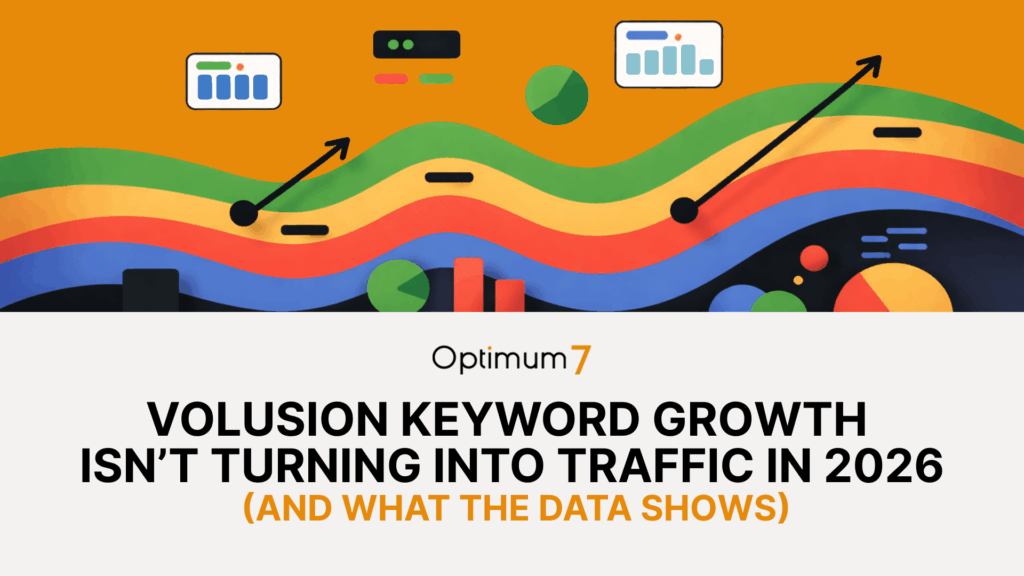Ranking algorithms are becoming smarter and methods that used to work at boosting rankings are quickly falling out of favor with Google and other search engines. Let’s look at what best practices are going to benefit online marketing efforts in 2015.
First we need to ask ourselves…what is value?
Rather than appealing to search engine crawlers, websites need to appeal to users more than ever with relatable and engaging content. And yes, Google can tell when content is genuinely appealing to users rather than search engine crawlers.
Any Old Content Just Won’t Do
Therefore, you need to create content that matters to people, not search engine crawlers. Creating high quality, relevant and share-worthy content is quickly becoming critical to ranking well. A couple of relevant, high quality content articles, or blog posts a week is generally better than a bunch of average articles and posts with lackluster content.
Rather than rehashing content or rewriting something someone has already been written about, research a niche topic and write a quality piece about it. This is far more effective than writing something that’s been written a million times or pumping out bland content pieces with no oomph. Take your time, research if necessary, and write something that provides value to the reader
Content needs to tear at your reader’s emotions, keep them engaged, and make them want to share or comment. If you’re not giving someone information that will help them, entertain them, or convince them, you will lose the reader and search engine rankings in favor of content that does. Always be truthful and positive, but enrich the reading experience with valuable content that matters to your audience.
If you’re not already creating high quality, valuable content for your users then you better hurry! Search engine monitors have been reporting that as early as May 2015, Google quietly rolled out a “Phantom” update that began ranking pages with high quality content much higher than those with low quality content. So, in essence, those with so-so content or worse are now being more effectively penalized in comparison to those with good content.
Google’s Panda 4.2 algorithm update is rolling out slowly over the coming months. Panda — which was first released in 2013 as the original major content quality search engine update — is being fine-tuned and getting smarter than ever. Here are some ways you can do a content evaluation:
- Identify your user community and what they seek the most. Use Google Analytics to determine what your most popular content is as a building block for future content.
- Think twice about what you’re an expert on and how you can communicate that knowledge to genuinely benefit your audience — without just selling, selling, selling.
- Build an engaging user community around your content by making people look forward to the content that you consistently create.
Keywords Matter Less (But Are Still Important!)
Rather than using the traditional keyword to help websites rank better, search engines are becoming more semantically oriented. That means they’re trying to predict a user’s intent when they search, delivering them relevant, context-based results. The way a user phrases his or her keyword is increasingly important.
Intent, such as “How does an iWatch work?” versus “Where to buy a cheap iWatch” along with the context of the content on the search result pages are all considered. Let’s take a closer look, ourselves. The first search indicates a user with intent to learn, although they may eventually transform into a potential buyer. The second search indicates a user ready to buy if they find the product for the right price.
Singular keywords aren’t as important as the overall content and context in which they find themselves.
- Keyword stuffing is the act of including superfluous broadly relevant keywords on web pages in attempts to boost organic hits. Keyword stuffing is not really helpful anymore and may hurt your ranking. This really shouldn’t be much of any news to anyone. This is spam. This is recognized and is penalized by search engines.
- Instead, you can more naturally include specific keywords and phrases that are highly relevant to the content on your page — but we still recommend you just let your content speak for itself.
- Ensure highly accurate meta titles and descriptions on search result pages relevant to the on-page content along with well-structured URLs.
Smartphones on Top
“Mobilegeddon” is here. The initial impacts of Google’s mobile-friendly site-favoring algorithm update weren’t as pronounced as expected, but will increase over time. Up to 80% of Internet users own a smartphone, which means they are highly likely to be accessing the Internet on those devices (I know — how many times have we heard that before?).
Having a responsive mobile website is critical to making sure users get what you want them to get out of your website.
Using a mobile device to navigate a website that is not mobile optimized or responsive is a headache for users, often leading them to leave in frustration and reflects poorly on your business. It’s a key measure of the quality of your website and Google will penalize you in favor of your competition with responsive platforms.
If your website isn’t already responsive, it better be soon. Making a website responsive doesn’t necessarily mean having to invest in an expensive redesign, but it sure does help to have a spiffy website.
- Check your mobile website on various mobile phones or BrowserStack for intuitive mobile navigation, usage, and compatibility. How would actual phone users think and feel?
- Test and optimize page speed using Google’s PageSpeed Tools to make sure pages load fast.
- If you’re a brick & mortar business, ensure accurate Google My Business info along with other local website listings. Update all phone numbers and business hours on Google and Bing.
Don’t Be Annoying
You’re already keen on delivering a high quality, positive experience to your users. But did you know that some common practices, such as annoying autoplay ads and huge above-the-fold ads, are almost universally annoying your users (especially on mobile)? In fact, Google hates these so much they’re penalizing sites that make excessive use of such advertising instruments.
Test your website out for yourself or ask some friends to go over it for you. Have them tell you what they find most annoying or frustrating. If you’ve got any kind of interruptive advertisements, those will likely be at the top of their list.
Consider swapping to less-intrusive forms of advertising that don’t harm the overall user experience.
Not so Micro Microdata
Schema.org microdata can be a big boon to your visibility on search engine pages by enabling rich snippets on competitive search engine result pages for your website. Schema microdata is code included on every page that is easily understood by web crawlers. It tells search engines exactly what data is on your website and how it should be treated.
Microdata can help users find relevant content more easily. Microdata has been around for a while, but many sites are still ignoring its utility. Microdata improves the visibility of your site on highly competitive search engine result pages and gives more information to the user so they can make an informed decision. Here’s how to use it:
- Implement microdata specific to your content.
- Include it on the most valuable pages first.
- Test the data using Google’s Structured Data Testing Tool.
Remember: Engagement Matters
It is ill advised for most brands to abstain from consistent and effective social media use in today’s market.
Engaging your audience via social media is crucial. A website with content that is constantly being shared, talked, tagged, or liked will rank higher. Social signals are the metrics that are used to take into consideration user engagement with regards to Google search result rankings.
Many case studies exist documenting the positive effect of increased social media activity for brands.
By building up your brand as engaging and fun, you will help keep and make new customers.
- Sometimes, the best engagement comes from sharing how your business works or what your business creates.
- Special offers, sales, and contests for social media followers work well.
- Don’t be sales-y. Be natural and honest about your brand and work.
Don’t Forget Local SEO
Considering the number of people using mobile devices, you’d be crazy not to invest some time in crafting a great mobile experience for your visitors. You’d be even crazier if you ignored the likes of Yelp and Google Local Business Listings. This makes it easy for mobile searchers to find your business online, see your business hours, you’re your location, and access your phone number — which is critical.
If your local listings are out of date or incomplete, you will miss out on business. Think about the times you’ve searched for a business, only to be frustrated by incomplete or out of date listings. Don’t be one of them; keep your listings up to date. Here are some tips:
- Keep your Google My Business up-to-date.
- Engage with customers in a positive and friendly manner on Yelp and Google Reviews — even on negative reviews.
- Promote your social media at your local business location(s).
Link Building
Back in the day, the total number of links you had pointing to your website was an important ranking factor no matter where they came from. This hasn’t been the case anymore for the last few years. Your links need to come from reputable sites with high domain authority.
Check your website using Google Search Console (formerly Webmaster Tools) for poor quality, or spammy backlinks and ask those webmasters to remove them. If they don’t then disavow them through Google.
These days, bad links can actually hurt your ranking on Google. A few high quality backlinks from sites with high domain authority such as .edu sites and popular blogs will help more than a lot of low quality backlinks. Data from the 2015 Search Engine Ranking Factors survey still shows properly placed high-quality links to be of strong importance.
Obviously, the biggest focus in this article is on content. Natural link building is the way to go. This is because content is immensely more important to Google ranking algorithms. But not just any content, rather content that people find useful and want to start conversations about.
If you take away nothing else from this article, remember this: if you don’t have a good content strategy, now’s the time to start. Here are some easy ways to do so:
- Check Google Search Console’s “Links to Your Site.” If thousands or more are coming from the same domain and they don’t seem legit (check first!), consider asking for them to be removed and disavow them if they are not.
- Not surprisingly, one of the most effective ways to build links is to create high quality, relevant content that people will “naturally” link to or share.
- Don’t pay for someone to find you “thousands of backlinks.” They’ll most likely be low quality, spammy ones that will hurt you.
Conclusion
SEO and content strategies have become intimately embroidered with each other. A relevant and value bursting content strategy is more crucial to SEO than ever before. There are a lot of crucial steps that go into your search engine optimization and content strategy, but if you go out of your way to make sure you’re doing all of these things well with your website, you’re way ahead of the game.
The search engine marketing landscape is always changing, but it’s trending heavily towards favoring the user. Search engines are getting a lot smarter at separating true value from stuff just made to look good on the surface.
All of these things put together barely scratch the surface of what a good content and SEO strategy looks like. If you’re in need of some advice on the always-evolving rules of SEO and content marketing, contact the pros at Optimum7 today.






